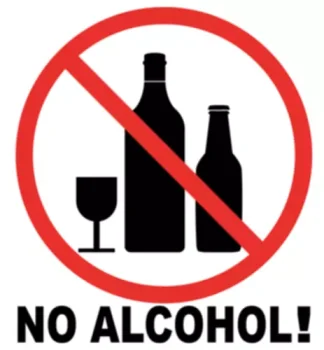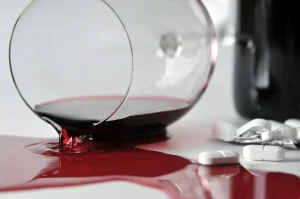Ketamine: What Is It, uses, treatments, effects, and more effects

Before Spravato was approved in 2019, ketamine was prescribed off-label for the treatment of depression. Other off-label uses of ketamine include treating bipolar disorder, post-traumatic stress disorder, as well as substance use disorder. Ketamine can be administered during abdominal operations, orthopedic procedures, surgical burn treatment, some dental procedures, and many other types of surgery. This medication is used for different types of anesthesia, including general anesthesia and spinal anesthesia.
- Of course, any comparison to opioids raises the question of the risk of addiction.
- It’s as if ketamine helps make new catcher’s mitts for the glutamate, so that the nerve cells can respond to it again.
- It is used in major and minor surgeries and for planned and emergency procedures.
- Fast heart rate, high blood pressure, hallucinations, and impaired consciousness upon presentation to the emergency department may be most common effects with “snorting”.
- Ketamine is also being studied for other mental health issues, such as post-traumatic stress disorder (PTSD), obsessive-compulsive disorder (OCD), and in those with a history of psychosis.
Usual Pediatric Ketamine Dose for Anesthesia:
However, researchers are now looking at whether there might be some benefits in the fight against addiction. Ketamine was linked with better outcomes when used along with behavioral and motivational therapy in two clinical trials on substance misuse treatment. Below, get the details on the potential benefits and risks of trying ketamine for treatment-resistant depression, plus guidance on getting a prescription from a qualified mental health professional. Because the drug is FDA-approved, it can be covered by insurance. But the drug must be administered under a doctor’s supervision, leading some experts to worry that patients could have problems accessing it, as they do with intravenous ketamine.
Is Ketamine Safe?
- First used during surgery and then popular in the party scene, it is now showing promise for helping to treat alcohol addiction and mental health conditions.
- People who use it claim that a ketamine trip is superior to a PCP or LSD trip because it produces shorter-term hallucinations that last 30 minutes to an hour instead of several hours.
- A columnist wrote about his own journey out of depression using ketamine.
- This drug can cause a sense of dissociation from reality and may lead to fleeting hallucinations.
- Symptoms may not improve much or at all, or they may improve but keep coming back.
But they were written in an era before the rise of telemedicine and pop-up clinics. If you look at the claims being made by these entities regarding the safety and effectiveness of ketamine, they range from potentially misconstruing the evidence to being bald-faced lies. Anesthesia may still be necessary for a life-threatening condition, medical emergency, or surgery to correct a birth defect. Your doctor can inform you about all medicines given during a surgery or procedure. Yes, ketamine is a controlled substance classified as a Schedule III drug under the DEA Controlled Substances Act. This means that ketamine has a potential for abuse that is less than the drugs in schedules I and II.

Psychedelic and Dissociative Drugs
Long-term ketamine use has been linked to bladder dysfunction and memory loss. But it can offer a moment of revelation, and epiphany, an embodied somatic experience of goodness used to change one’s life. Additionally, ketamine has been abused to facilitate sexual assault. Ketamine is also used for anesthesia in a range of veterinary procedures, such as for dogs, cats, and other animals. I don’t think we have the same level of evidence that we do with opioids, where we have many well-designed, rigorously developed studies, but there is a risk of addiction.

Ketamine and alcohol
In 2019, the Food and Drug Administration (FDA) approved esketamine as a treatment for forms of depression that haven’t improved with standard antidepressants (like citalopram/Celexa or bupropion/Wellbutrin). Given over 10 years of experience with ketamine as a researcher and physician, in this article I try to answer some basic questions prospective patients often have about ketamine/esketamine. In clinical trials, https://ecosoberhouse.com/ ketamine infusions have been given as a single dose once or in multi-dose therapy, as infusions once, twice, or 3 times weekly for 2 weeks during the acute treatment phase. Sometimes infusions have been continued once or twice weekly during the continuation phase for a total of 4–6 weeks of therapy or gradually tapered. In clinical trials ketamine infusion therapy dose is lower than an anesthetic dose.
While these results show promise, research on ketamine for depression remains in the early stages, says Julian Lagoy, MD, a California-based psychiatrist with Mindpath Health. A columnist wrote about his own journey out of depression using ketamine. According to the World Health Organization (WHO), ketamine is listed as an “essential medicine,” and among the safest and most efficacious ones known to science. The available strengths include 200 mg/20 mL (10 mg/mL), 500 mg/5 mL (100 mg/mL), and 500 mg/10 mL (50 mg/mL). It is essential to dilute ketamine with an equal volume of normal saline, sterile water, or 5% dextrose. Ketamine is not a first line treatment for status epilepticus, and it is generally used when other treatments are contraindicated or when they have not effectively stopped a prolonged seizure.
- It’s important to note, though, that some recommendations suggest it may not be safe for people who have a history of substance abuse.
- There’s no research to suggest that more than 6 weeks in a row brings more benefits, though people do go back for boosters if symptoms return.
- When snorted, ketamine normally takes about 15 minutes to take effect.
- Ketamine could be fatal for people who abuse alcohol or if you take it while you’re drunk.
- While ketamine is used for more than sedation, the medication has gained a reputation as a cheap and addictive street drug, known as ”Special K,” which triggers hallucinations and feelings of dissociation.
- I certainly think clinicians and patients should be talking about these things.
Coming Back to Real Life

Anesthesia may affect brain development in a young child or unborn baby (when used in the mother), leading to learning or behavior problems later ketamine addiction in life. This is not a complete list of side effects, and others may occur. Common ketamine side effects are confusion or a dream-like feeling.
- Ketamine was originally patented in Belgium in 1963 and was approved for use in humans by the U.S.
- Ketamin can sedate, incapacitate, and cause short-term memory loss, and because of this, some people use it as a date-rape drug.
- By the time he was 45 years old, by then a father of two small children and a struggling-at-the-time film and video producer in Portland, OR, Winograd had hit rock bottom.
- Receive free access to exclusive content, a personalized homepage based on your interests, and a weekly newsletter with topics of your choice.

